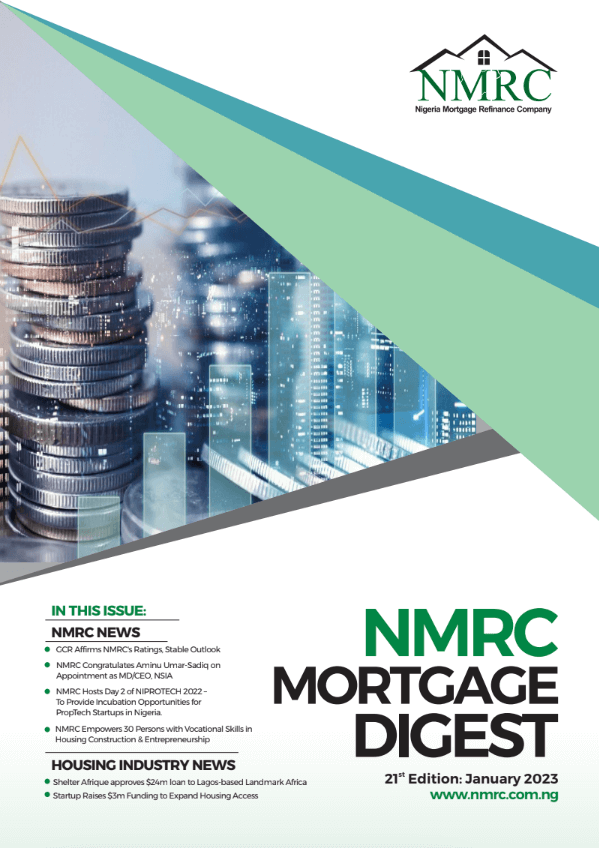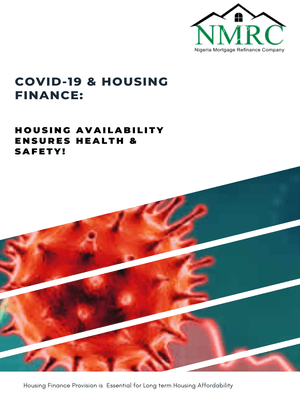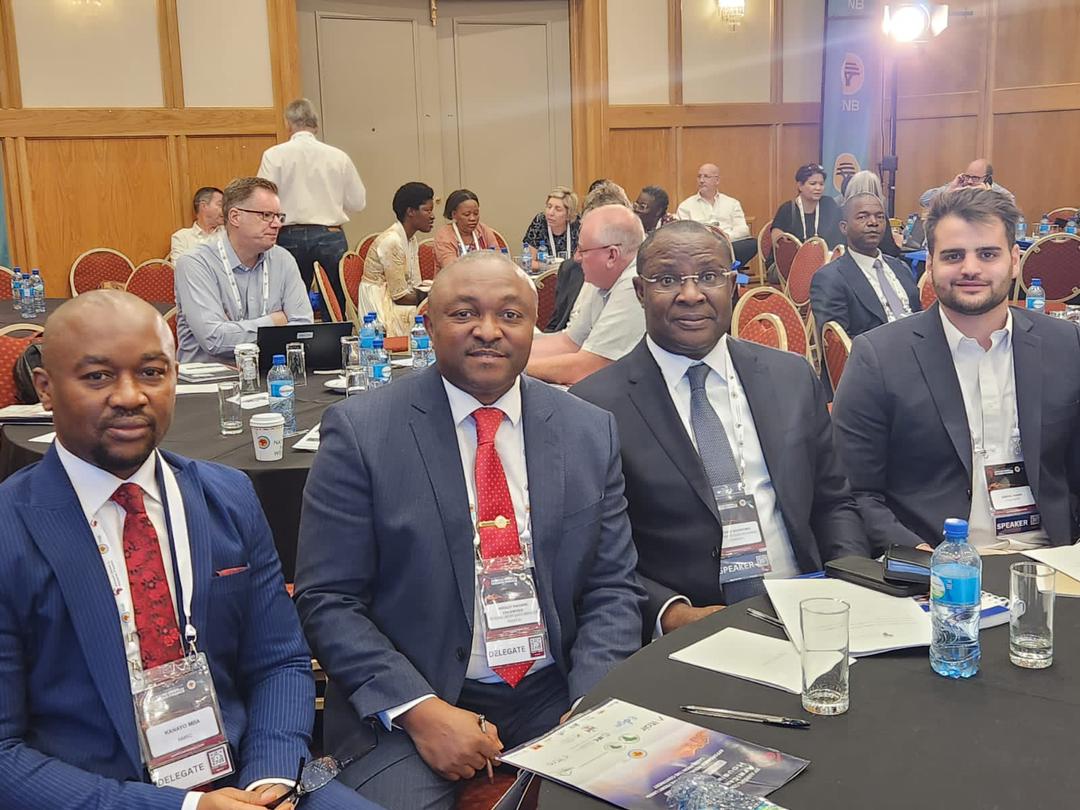Covid-19 & Housing Finance: Housing Availability Ensures Health Safety!

As with previous health pandemics, the novel coronavirus is testing the crisis-response capacities of countries and the resilience of key sectors of the economy. In the frontlines are health and housing.
Across the globe, this test is notable at two fundamental levels. First is the ability of the world to marshal resources towards finding a vaccine or a cure in good time. Another is the sustainability and effectiveness of strategies being evolved by governments to manage, mitigate and contain the spread of the highly contagious respiratory tract infection, which has claimed over 125,000 lives and infected over 3 million people globally.
On both counts, the response has been swift and comprehensive varying only in degrees of scope and intensity. While governments, scientists, billionaire philanthropists such as Bill Gates and leading drug makers across the globe are in a frantic race to develop vaccines and effective treatment therapies for Covid-19, authorities have imposed lockdowns to restrict movement and stay-at-home orders while encouraging citizens to observe social distancing and hygienic practices.
However, the reality is that vaccines take time to develop. According to estimates of experts, it might take several months or years to get one for Covid-19. Even as countries are witnessing a decline in infection levels and gradually reopening their economies, scientists have warned that the virus might re-emerge in other phases. This implies that until a vaccine is developed, containment strategies such as lockdowns and stay-at-home orders will continue to be imposed from time to time.
No Homes to Stay in for Millions
In Nigeria, lockdowns and stay-at-home orders have brought into sharp focus the poor state of housing in the country thus, questioning the scale of effectiveness of stay-at-home orders to limit the spread of Covid-19. Decades of sub-optimal investments in the provision of affordable housing across key segments of the society has created a housing deficit that is estimated at about 23million units.
The United Nations Human Settlements Programme (UN-Habitat) in Nigeria estimates that about 80 million Nigerians, representing 79 percent of Urban population, are living in slums. There has been a rapid growth of informal settlements around cities including the Federal Capital Territory (FCT) and state capitals such as Lagos, Portharcourt and Kaduna because of high rents in city centers.

This implies that millions of Nigerians, largely those within the informal sectors of the economy, are highly vulnerable to the coronavirus pandemic. They lack access to decent shelter and clean running water and as such do not have the luxury to adhere to hygienic practices such as frequent washing of hands with soap.
Many of those who live in these slum dwellings leave daily to work as house helps, drivers and assistants to the elite in city centers. Thus, the vulnerability of this segment of the society to the highly contagious coronavirus constitutes a threat to all. This reality of a shared humanity and interconnectedness strengthens the case for greater action towards providing access to decent and affordable shelter for the overall health of the nation. In other words, it is in the interest of everyone that all citizens have access to good shelter.
Housing Finance Provision is Essential for Long term Housing Affordability
Although housing is a human right, it is also capital intensive. In November 2019, the Center for Affordable Housing Finance in Africa rated an $8,040 (i.e. N2.9M) house in Luvu-Maki in Nasarawa State as the cheapest in Africa. The house, a 32m2 one-bedroom semi-detached unit is built by the Millard Fuller Foundation (MFF) through the Family Homes Fund (FHF) who bulk-purchased the project from MFF. Even at this rate, amount is still far beyond the reach of millions of Nigerians.

The issue of affordability puts access to housing finance at the heart of resolving the housing crisis in Nigeria. For many western countries such as the USA, UK, a rough outline of the formula that has worked blends two major approaches. One is the implementation of social housing programs that are funded and subsidized by central governments to underprivileged citizens. The other is the creation of an enabling environment that encourages private sector investments in housing and the promotion of long-term mortgages as a path to homeownership.
Underlying both approaches is the social need to eliminate the huge initial capital outlay that housing entails so that economically active citizens can own homes and pay conveniently over time.
In Nigeria, the federal government and its housing agencies have until recently played leading roles in the provision of social housing in the country. For instance, the Federal Mortgage Bank of Nigeria (FMBN), the country’s apex mortgage institution has been leveraging funds accruing to the National Housing Fund (NHF) scheme, that it manages, to provide single-digit interest loans to Nigerian workers. As at date the bank had only recorded less than 50,000 housing units in over 28 years of operations due to poor capitalization and inadequate financing.
The sub-optimal performance of these government programs explains in large part, the accumulation of a huge housing deficit that according to the World Bank will require over N56.8trillion trillions to resolve. It also validates the notion that to achieve rapid and sustainable housing delivery, the private sector must be encouraged to take the lead as is the practice in other countries with highly developed housing sectors.
A New Direction: The Capital and Housing Market Nexus
It is on this basis that the bold actions of the Nigeria Mortgage Refinance Company (NMRC) since its establishment in 2015 provide strong basis for optimism that a new direction is underway.
Designed in the mold of Fannie Mae and Freddie Mac of the USA, NMRC’s historic measures are significantly improving access to affordable housing finance, tackling decades-old systemic problems in the sector and as a result laying a solid foundation for a new, modern housing finance market for the country that is conducive for private sector investments.
In the past four years, NMRC has successfully linked the mortgage market to the capital market thus deepening liquidity in the system. NMRC has issued bonds and raised a total of N19 billion from the capital market to refinance mortgage loans that are provided by mortgage and commercial banks that it partners with. This comprises N8 billion in July 2015 and N11 billion in June 2018. To date, NMRC has refinanced mortgages to the tune of N20 billion. NMRC’s refinancing operations have increased the capacity of mortgage lenders to give loans with tenors of up to 20 years at significantly lower interest rates.
What is innovative about the NMRC is the catalytic way it deploys its funds? The company uses long-term funds that it raises from its bond issues to purchase loans that mortgage and commercial banks give to working Nigerians. The implication is that, instead of waiting to recoup the loans through monthly payments over periods that may range from ten to 15 years, NMRC ensures they get the full value of the loans after six months. NMRC’s capacity to make this quick liquidity conversion has boosted the financial standing of its partner mortgage banks, empowering them to process even more mortgages to other potential homeowners.
NMRC currently has an N440billion bond issuance program that is guaranteed by the federal government and is working to increase the frequency and size of the company’s bond issues in order to rev up its refinancing activities. As the Central Bank of Nigeria (CBN) rolls out interventions in response to Covid-19, NMRC represents an ideal institutional tool that the apex bank can leverage to grow the housing sector in a sustainable and private sector driven manner. This can be in the form of expanding NMRC’s Bond Issuance Program from the current N440billion to about N1trillion.
The Path to Affordable Housing Finance for All
What is interesting about NMRC’s interventions is that it supports potential homeowners in all income segments of the economy. NMRC has led efforts to create underwriting standards that mortgage lenders can use to provide loans to both the formal and informal sectors of the economy.
The standards set clear industry guidelines that mortgage banks are expected to comply with in originating and processing mortgages that can be refinanced by NMRC. They serve the strategic purpose of creating a strong system for mitigating risks associated with mortgage financing.
Currently, all NMRC’s participating mortgage and commercial banks used these standards to process mortgage applications. The adoption of these standards by the banks and the strict application has helped NMRC to achieve zero default rate on the loans that it has refinanced so far. This means that Nigerians that all economically active Nigerian in both formal or informal employments can now access housing loans from both commercial and mortgage banks to build or purchase a home of their own and pay back over periods of up to 20 years at significantly lower interest rates.
Making Housing an Investment Option for the Private Sector
Besides increasing liquidity of mortgage lenders and setting standards, NMRC is also promoting the creation of an environment that is safe for the private sector to invest in nationwide. At the heart of this push is NMRC’s development a model mortgage foreclosure law and advocacy for its adoption by state governments nationwide.
The Kaduna State government last year made history as the first state to adopt the law. Lagos state has also adopted key aspects of the NMRC mortgage foreclosure law. The law is critical to creating legal mortgages across the country and ensuring the timely resolution of disputes. The law is also necessary as a strong legal basis that empowers mortgage institutions to recover the balance of loans from defaulting borrowers by forcing the sale of the asset used as the collateral for the loan.
Clearly, NMRC is playing a leading role in tapping Nigeria’s capital market to boost housing finance availability. The early steps show great promise. As is the practice in other matured housing industries like the United States, the capital market is a more effective and sustainable way to leverage long term funds to drive delivery of affordable housing. Doing so guarantees greater access to the quantum of finance required to scale housing interventions and create impact.
Covid-19 has brought to the fore the challenges in the housing sector. The issues are urgent and critical and fixing them will require a broad-based coalition of all housing institutions.
It is assuring to note that the CBN has recognized the housing sector as a key area of priority in its strategic response to Covid-19 with plans to facilitate government intervention in housing development, mortgage finance and institutional capacity as well as easing land administration issues at state levels.
The CBN’s Covid-19 intervention will be impactful and effective once the housing construction and mortgage intervention components are implemented as part of the immediate and short-term deliverables. The Covid-19 intervention by CBN would do well to consider essential partnerships with stakeholders like NMRC that are already blazing the trail in Policy, Title and Housing Finance Innovations through successful initiatives like the Model Mortgage Foreclosure Mechanism, Electronic Title & Mortgage Administration System and Mortgage Bond Issuance.
These measures and proposed collaborations will go a long way in ensuring housing for all, growing the sector, and unleashing the capacity of housing for job creation and economic growth. For Nigeria, therein might lie the hidden benefits in effectively responding to the Covid-19 Pandemic and as already stated in various quarters by policy makers and decision makers “we must not let this crisis go to waste”.
























